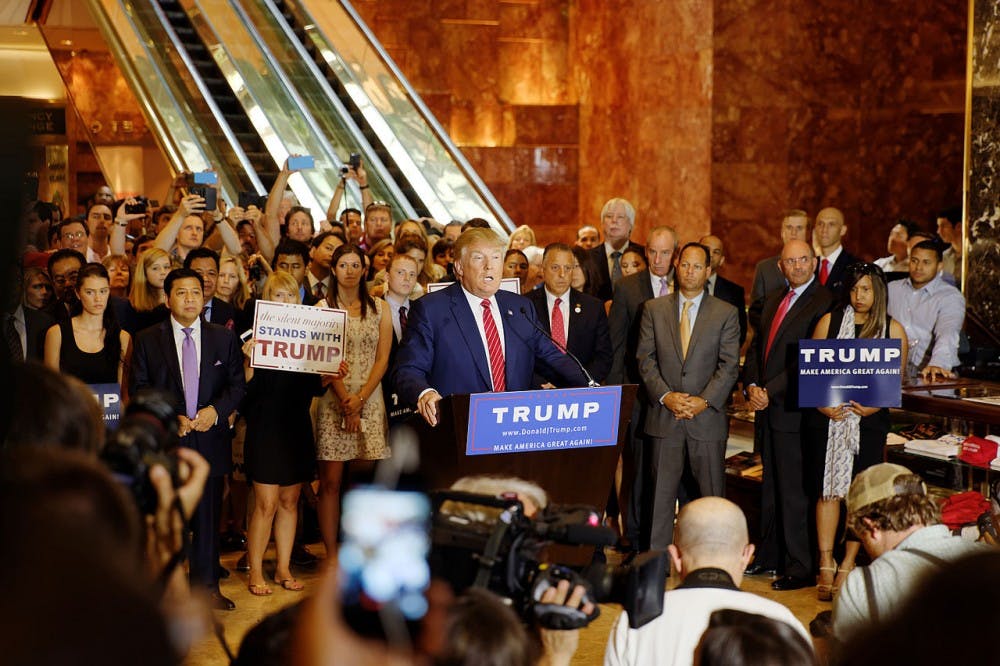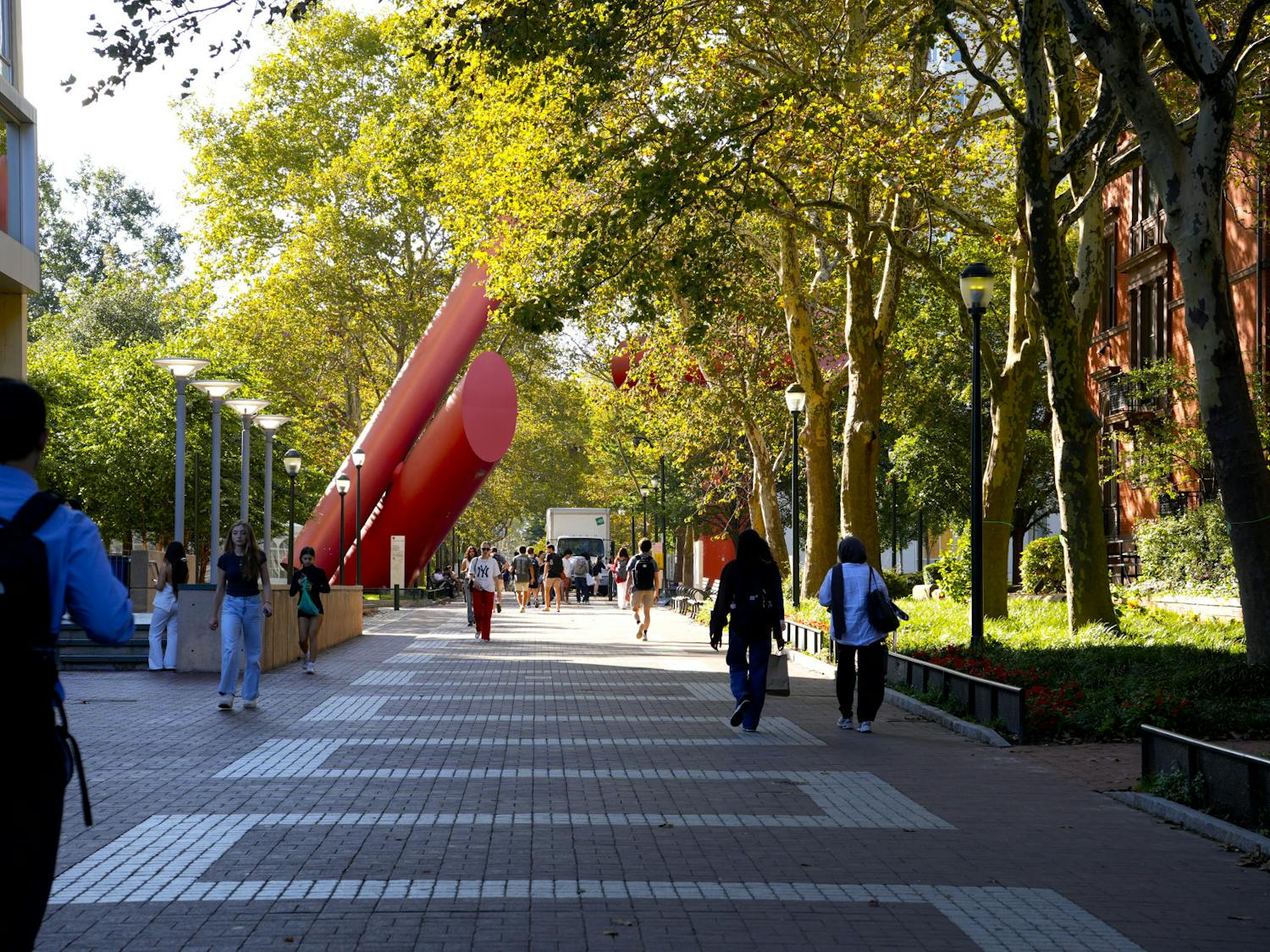Presidential candidate and 1968 Wharton graduate Donald Trump called on Monday for a complete ban on Muslims entering the United States. His remarks came just hours after new poll numbers showed Trump being overtaken by fellow candidate Sen. Ted Cruz.
The Trump campaign cited a controversial June survey of Muslim Americans by the Center for Security Policy, which found that 25 percent of respondents agreed that violence against American citizens was justified as part of a global Islamic jihad.
“Our country cannot be the victims of horrendous attacks by people that believe only in Jihad, and have no sense of reason or respect for human life,” Trump wrote in a statement.
His announcement came shortly after a Monmouth University poll was released early Monday afternoon, placing Trump five points behind Cruz in the crucial electoral state of Iowa, which holds its presidential caucus in less than eight weeks.
Within hours of the announcement, Trump had overtaken Cruz by thirteen points, according to the latest CNN/ORC poll.
Several presidential candidates have already spoken out against him on Twitter, describing Trump with phrases like “demagogue,” “unhinged,” “downright dangerous” and “bad for America.” Other commentators have raised questions about the constitutionality and logistical value of Trump’s proposal.
“Donald Trump’s comments today were just the most recent in a long string of divisive, xenophobic statements that have no place in a presidential race,” recently elected Penn Democrats President Max Levy said in a statement.
Levy reiterated the Obama administration’s policy to unite the American people, including Muslim Americans, through the principle that “freedom is more powerful than fear.”
Former Penn College Republicans President Will Cassidy agreed that Trump’s inflammatory remarks cause more harm than good.
“Instead of fear mongering, we need to focus on policies that will keep us safe,” Cassidy said in a statement.
He added that instead of encouraging anti-Muslim prejudice, the U.S. government should pursue less confrontational tactics in the Middle East, such as supporting moderate Syrian opposition groups, reviewing the U.S. visa program and restarting "bulk data collection of Middle Eastern intelligence."
Like many opponents of Trump’s proposal, both Levy and Cassidy questioned the usefulness of a travel ban that screens individuals solely on religion, arguing that there will never be a constitutionally valid religious test to enter the U.S.
“A test based on religion for immigration or travel to the United States is discriminatory and ultimately counterproductive,” Cassidy said in a statement.
Trump’s proposal closely followed an address Sunday night by President Barack Obama, where he called on Americans to reject attempts to discriminate against Muslim Americans in light of the attacks on Paris and San Bernardino, Calif.
Despite blowback from political pundits and other candidates, Trump has stuck by his remarks, tweeting hours after releasing his statement, "The main stream media wants to surrender constitutional rights -- I believe #ISIS needs to surrender!"









